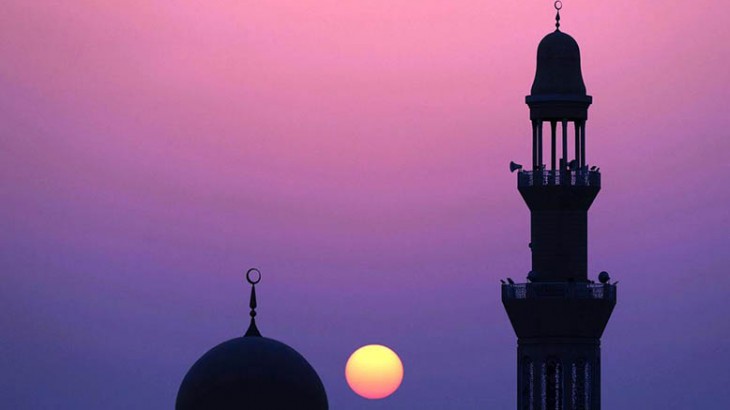Ramadan Mubarak

Muslims around the world are preparing for the Islamic holy month of Ramadan, a time for spiritual reflection, contemplation and celebration.
As the Islamic calendar is based around the lunar cycle, Ramadan rotates by approximately 10 days each year. This year, Ramadan begins on the evening of Sunday 5 May and ends on Tuesday 4 June.
Muslims believe Ramadan is the holiest month in the year, when the Qur’an (Koran), the holy book of Islam, was first revealed to the prophet Muhammad. During this period, observant Muslims will not eat or drink between sunrise and sunset. Fasting during Ramadan does not mean Muslims retreat from their daily routine; rather they are encouraged to continue as normal in their work and usual activities.
Muslims believe that fasting is not merely a physical ritual, but is primarily a time for reflection and spiritual recharging. During a period of fasting, Muslims believe that their desires are curbed and that they can gain understanding of how those who are less privileged than them feel. Fasting is considered to increase one’s patience, endurance, closeness to God and generosity towards others.
We asked colleagues what Ramadan means to them...
Deployment lead Waheed Arshad, said: ‘I look forward to Ramadan every year due to the mental and physical challenge it brings, but one I know I won’t be facing alone. Although many of my family, friends and colleagues will be fasting too, it’s still a very personal experience. For me it’s a time for reflection and being really grateful for what I have, every day of the year.’
‘Ramadan is about more than fasting as one of the central themes is about self-discipline and God-consciousness. Muslims use Ramadan as an opportunity to improve themselves by making the extra effort to refrain from bad habits and behaviours. They will also increase what they normally give to charity - all with the aim of continuing this improvement throughout the year.
‘Currently the daylight hours are still pretty long. So those fasting will have their pre-fast meal (Suhoor) at around 2am and break their fast (Iftar) at 9pm. So, as well as eating patterns changing, so too do sleeping patterns. Some colleagues will have arranged to take their holidays through all or part of the month, but my full admiration goes to those frontline colleagues who choose to fast while continuing to work.
‘Ramadan can also be quite a significant time for the business. Many colleagues will already start to see the increase in letter traffic to Muslim households. UK charities still see mail as an important way of connecting with donors and as Muslims increase their charitable donations during Ramadan, estimated at around £100m during Ramadan 2018, what better way for charities to communicate the good work they are doing.
‘As we approach the end of Ramadan we might see a small increase in parcels for some areas as people order their gifts online in preparation for Eid al Fitr on 4 June. As some people sleep during the day, bear in mind it might take a little longer than usual for them to come to the door!’
Afzal Ghany, senior HR business partner, said: ‘For me, Ramadan is a period of self-reflection, patience, sincerity and spiritual growth. It is a time for being more charitable and maintaining closer bonds with family, friends and the community at large. To celebrate it, I will be gathering with my family and friends to feast and enjoy the day!’
Wellbeing during Ramadan
OH Assist has produced guidance notes on keeping well during Ramadan. They can be found here.



